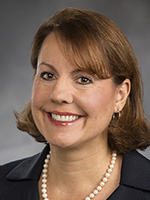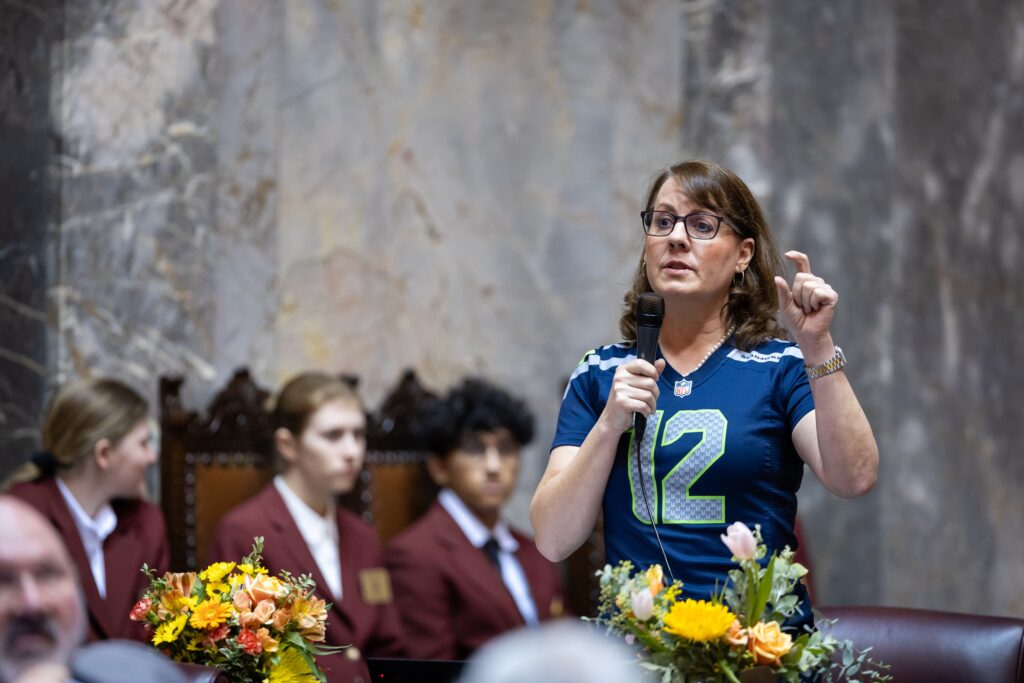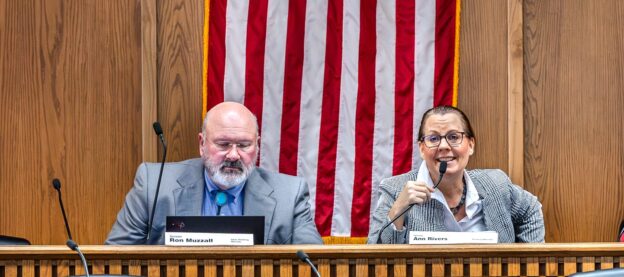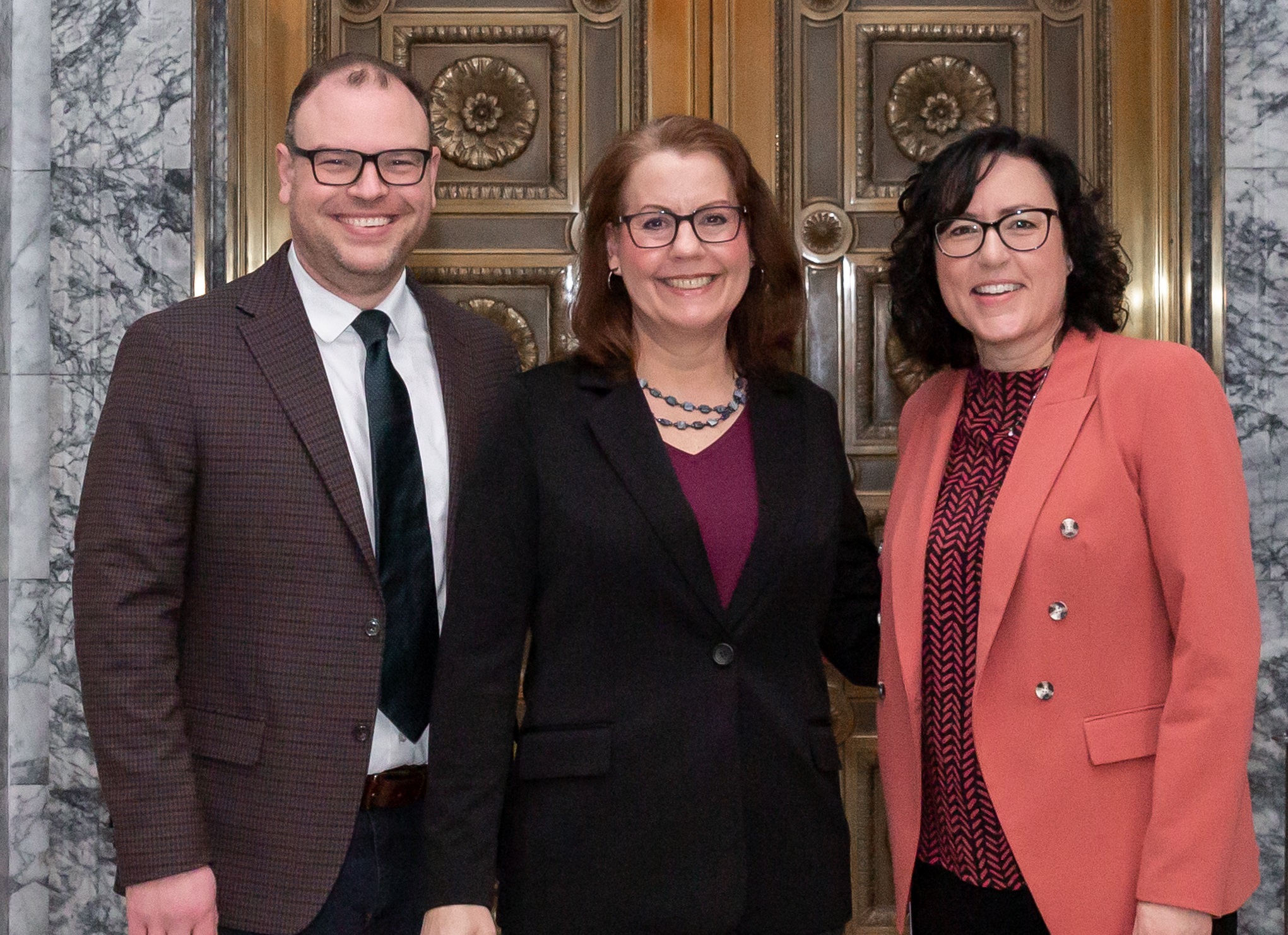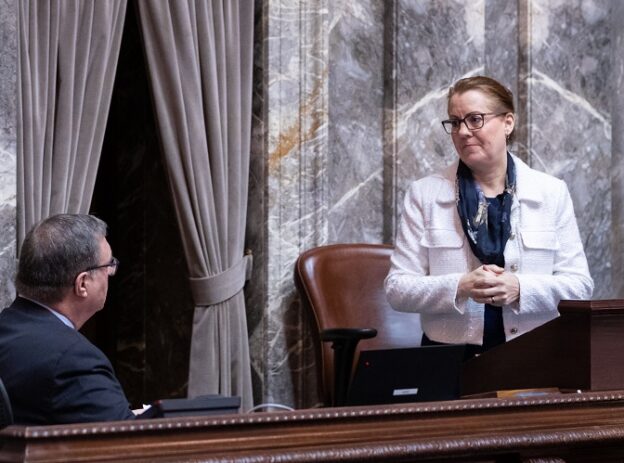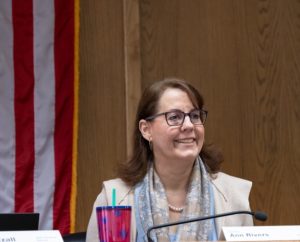Sept. 12, 2023
Hi, Neighbors!
For legislators, the period between our annual sessions is called the “interim.” Seeing how it’s been about four months since the 2023 legislative session ended and there are about four months before next year’s legislative session begins, here’s a mid-interim update.
I hope this finds you and your loved ones well. If you have a question or concern involving state government, please don’t hesitate to reach out by phone or email.
Sincerely,

Click here to see legislation I introduced during our 2023 regular session, and here to see the measures I co-sponsored. The list with each bill introduced during this year’s session is available here.
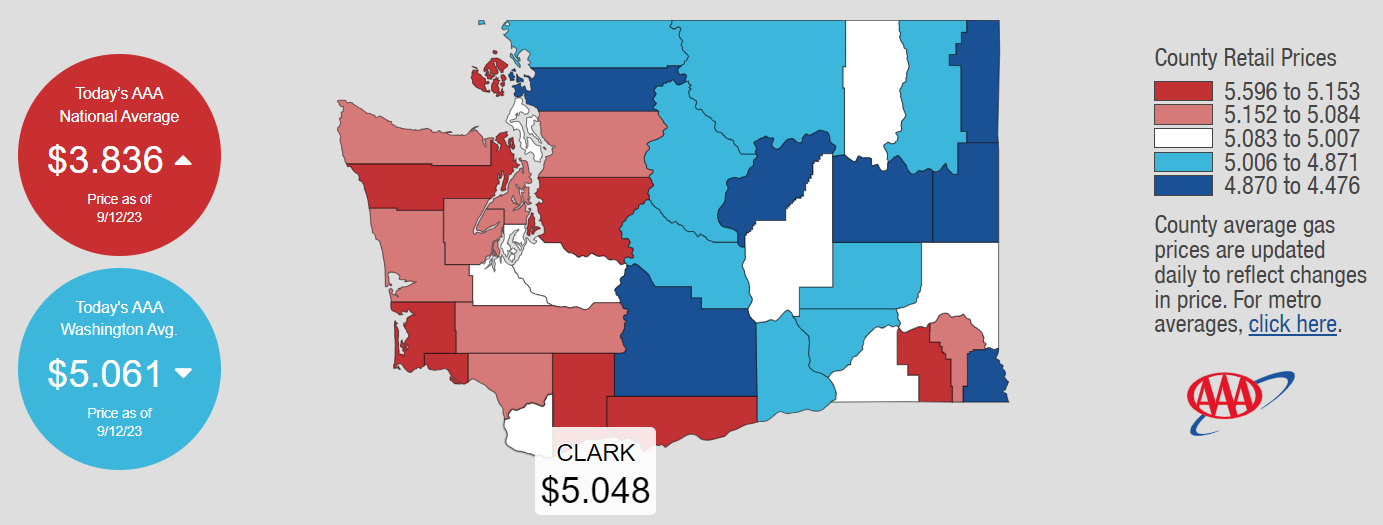
Across the Columbia from us, the average price of regular unleaded is $4.85 in Multnomah County today, and $4.77 in Clackamas County. Unlike Washington and California, Oregon has no cap-and-trade policy.
What’s with the high gas prices?
Hardly a day goes by without someone commenting to me about gas prices. Since mid-June our state has been worst or second-worst in the nation when it comes to pain at the pump.
Governor Inslee passionately blames the oil industry for Washington’s high gas prices. Just last week when visiting a Hockinson school classroom he made a reference to the “rapacious oil and gas industry.” I don’t think it’s that simple. If this was just about profiteering, Oregon gas would not be roughly 30 cents less, and Idaho gas would not be around 90 cents less.
Gas prices are influenced by several factors. I see our state’s cap-and-trade law (officially, the “Climate Commitment Act”) as the primary reason Washington gas is averaging over $5/gallon (California, the other state with a cap-and-trade law, is the only other state with $5 gas – and I don’t think that’s a coincidence). Another state law passed in 2021 on fuel standards is also a driver.
The cost of producing or transporting something is typically reflected in the prices consumers pay for that “something.” That not only explains the rise in gas prices, but also the hikes in the cost of groceries and much more, as freight deliveries use fuel too.
Also, supporters of our state’s cap-and-trade policy prefer to call it “cap and invest.” I get it, but the “invest” needs to make sense for all Washingtonians – because we’re all paying. For instance, hybrid and electric cars need good, safe roads as much as vehicles with internal-combustion engines, but the revenue from this policy doesn’t seem to be heading that way.
Back in 2015, I was the lead co-sponsor of the first carbon-reduction bill passed in either house of our Legislature. While it didn’t become law, that legislation was a thoughtful approach – and we need more thoughtful ideas now.
I recently saw such a list from a group of timber folks. Like planting vegetation (particularly native trees) in state-owned rights-of-way, to act as carbon sinks. Like directing purchases with tax dollars to local vendors instead of out of state, thereby reducing the carbon footprint of those goods and services. Like doing more to extend the lifecycle of raw materials, such as wood products. The ideas reminded me of when I was part of the Washington State Climate and Energy Delegation that studied sustainable development in Sweden and Denmark several years ago.
My style as a policymaker is inclusive, in that I believe the best solutions come from working with everyone. It doesn’t matter which side of the political aisle you’re on. Let’s all get in the room, so to speak, and hammer things out. There have to be ways to decarbonize that will not, unlike the burden of high gas prices, fall harder on people with lower incomes and those who live in rural areas. If you have an idea, please speak up!
Decision to close Larch is cold-hearted
Speaking of a lack of transparency… the Department of Corrections plan to close Larch Corrections Center next month has to be one of the most underhanded moves I’ve seen in all my years as a legislator.
I served the LCC community as a House member and as for my first 10 years as a senator, until the new map of legislative districts put that part of Clark County into the 17th Legislative District in 2022. I’ll bet a fair number of the 115 employees at LCC call the “new” 18th District home. They were blindsided by the DOC announcement, and so was I.
DOC didn’t say a word while the Legislature was in session. The agency reportedly waited until June to even tell the governor’s office. The first public announcement, which didn’t come until June 26, claimed the closure would “address a declining incarcerated population” and the agency’s plan to decrease solitary confinement.
In a “Frequently Asked Questions” document 10 days later, DOC added the claim that Larch will need “significant capital improvements.” As a member of the Senate Ways and Means Committee, who is now assistant Republican leader for the capital budget, I would have discussed those needs with DOC had the agency bothered to bring it up.
Here’s part of what I have replied to Larch supporters who contacted me after the closure announcement:
No one needs to convince me about the value of keeping Larch Corrections Center open. I know its history and its place within Clark County and southwest Washington, and am familiar with the quality education/training programs and the critical work done by the firefighting crews…
There is so much partisanship in our society these days that I am reluctant to sound partisan myself, but after I read the DOC announcement from July 6… there is no getting around the idea that more than any other factor, Democratic control of the Legislature and the executive branch is directly responsible for the Larch closure.
Here’s the line that leads me to that conclusion: “Changes to sentencing laws following the Blake Decision in 2021, along with mandated releases during the pandemic, have left DOC with a surplus of minimum-security beds.”
In so many words, DOC is saying Larch doesn’t fit into a world where fewer felony sentences are being handed down. But here’s the reality: the Democratic majority in the Legislature has created that world. When responding to the Supreme Court’s Blake decision – which came in the middle of our 2021 session – the Legislature could have easily preserved the law that makes possession of hard drugs a felony. Adding just one word would have made that law constitutional again.
Instead, a group of legislators at the fringe prevailed in knocking drug possession down to a misdemeanor for the past two years. We have all seen the disaster that has caused in our communities, with rampant drug use. And despite that obvious failure, you would not believe what a fight it was this year just to get the law to a gross misdemeanor charge, which we did during a special legislative session on May 16. But because a gross misdemeanor is not a felony, DOC was then free to move ahead with the Larch announcement.
Those “mandated releases during the pandemic” were another decision that Governor Inslee could have blocked had he wanted. I can’t believe a Republican governor would have let so many inmates out early. I have questions too about the line “Also, as DOC moves toward a more humane corrections system…” which is thrown into the announcement kind of like a final twist of the knife for LCC.
As reported by the Washington State Standard, Larch wasn’t the first target for closure – a prison in Forks was. DOC claims most of the Larch residents “identify” with King or Pierce counties, and visiting created a hardship for family or loved ones. But Yacolt is less than a 3-hour drive from Seattle and Tacoma, yet the Olympic Corrections Center in Forks is more than 3 hours from Tacoma and more than 4 hours by car from Seattle. So don’t tell me the “remote location” is a real factor, when here’s the reality: the legislative district that includes Forks is represented in Olympia by Democrats; the district including Larch is not.
DOC says this will be a “warm” closure, so the facility could reopen, but I still see this move as being cold-hearted for so many reasons.
Drug-overdose deaths still going the wrong direction
According to the federal Centers for Disease Control, Washington saw a nation-leading 28.4% increase in drug-overdose deaths from March 2022 to March 2023. That’s the latest 12-month period for which statistics were available. It’s also the third straight month in which the CDC’s 12-month lookback puts Washington first – or worst – when it comes to the increase in drug-overdose deaths, by percentage.
According to the latest CDC report, and again using the March-over-March figures, Washington also now leads the country in the number of increased deaths, with 688 more than in the prior 12-month period.
March is when a majority in the Senate approved changes to the disastrous drug-possession law passed in 2021. It would be another five weeks before a majority in House backed a different version of Senate Bill 5536, which set the stage for the closing-day meltdown in the House that forced us into a “special” session in May. That new law only went into effect Aug. 15. Considering the lag in the CDC statistics, no one should expect to see the effects of this stronger law anytime soon – but hopefully the new law is already having an effect on the streets.
Of course, it doesn’t help when the state’s largest city drags its feet on following suit, as The Seattle Times notes here. It quotes my former Senate colleague Joe Fain, now a civic leader in Bellevue: “Treatment must be the priority, but the past few years of experimentation are clear: A hands-off approach to drug use is killing people at an unprecedented rate.” I couldn’t have said it better.
 LA CENTER… Sen. Ann Rivers has decided not to run for re-election to the state Senate from Washington’s 18th Legislative District.
LA CENTER… Sen. Ann Rivers has decided not to run for re-election to the state Senate from Washington’s 18th Legislative District.











